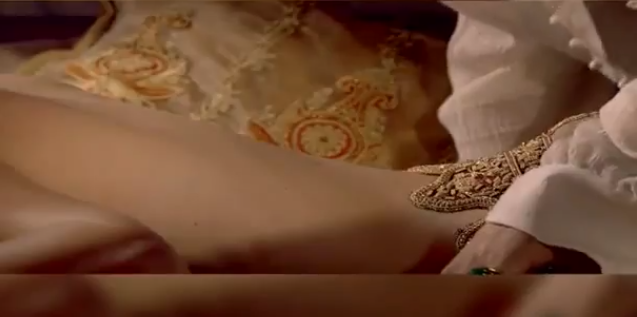 Despite protestations by Islamic clergyman against racy Turkish melodramas, a Reuters blog post (video above) describes Magnificent Century as “the most popular program in Turkey and one of the most popular shows in the Middle East.
Despite protestations by Islamic clergyman against racy Turkish melodramas, a Reuters blog post (video above) describes Magnificent Century as “the most popular program in Turkey and one of the most popular shows in the Middle East.
Aired in 45 countries, it is the latest Turkish soap opera to take the region by storm. And according to Turkish academics, the programs are subtly changing cultural norms.” Though Magnificent Century is set in the era of Suleiman the Magnificent, it and the other soap operas are – intentionally or not – positing a very confrontational idea to many in the Middle East: can we be both modern and Muslim?
Through the push to create compelling drama and high ratings, the show presents women as equal to men. There are scenes of kissing, drinking and sex that are formerly unheard of on Middle Eastern television, and, in the case of Magnificent Century, a Muslim leader famous for his religious tolerance and ability to work with people of other faiths.
For the producers of the show, the results have been spectacular. The recent season finale of another show, Noor (originally titled Gümüş in Turkish), pulled in over 85 million viewers and over half of all Arab women over the age of fifteen. To put that into perspective, on average, that’s around the number of people who watch the Super Bowl in the US each year.
From an outsider’s perspective, television programs, and non-violent movements of any kind, that encourage people to re-evaluate the state of society and revise the status quo appears to be a momentous, noteworthy milestone. Certainly, with the recent reelection of President Obama, there’s been a great deal of fretting over the changing face of US culture. I’m curious if any members of our informal global community have seen these Turkish soap operas. What do you think of them? Are they catalysts of an Islamic reformation in the Middle East or just a titillating diversion out to push the boundaries of higher ratings, not higher causes?

RW3’s CultureWizard is a leader in the intercultural and e-learning industries. He creates customized, co-branded CultureWizard websites that teach culture and foster cultural awareness through interactive e-learning tools and resources.
CultureWizard works with experienced interculturalists globally and tens of thousands of employees of global corporations turn to his insights daily. Country specific information on over 135 countries provides a wealth of cultural information and strategies for success when living and working around the world.








